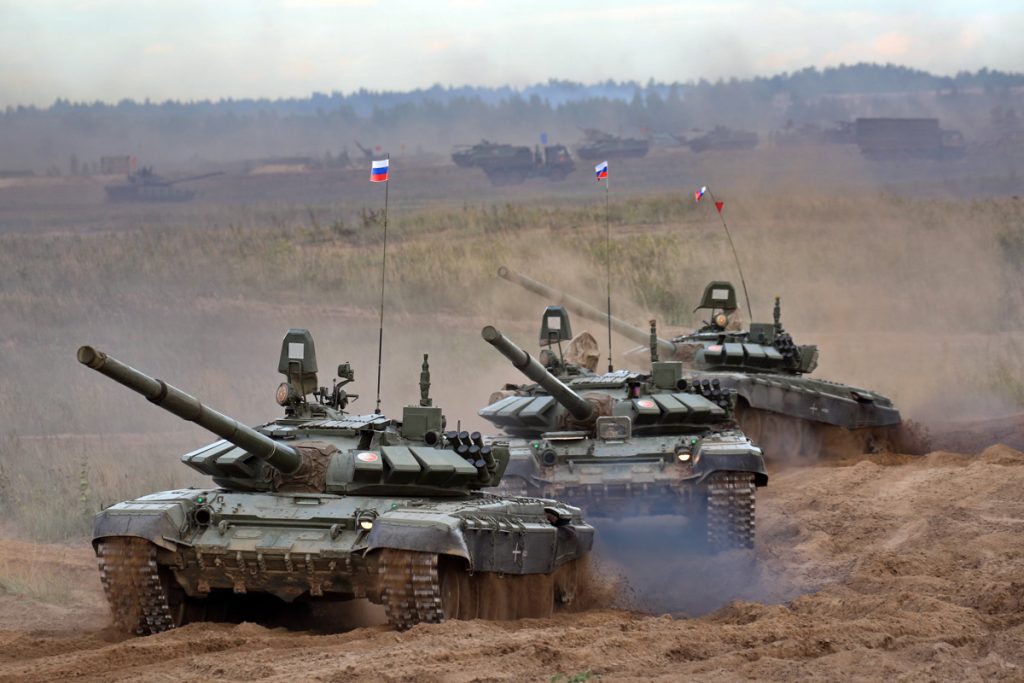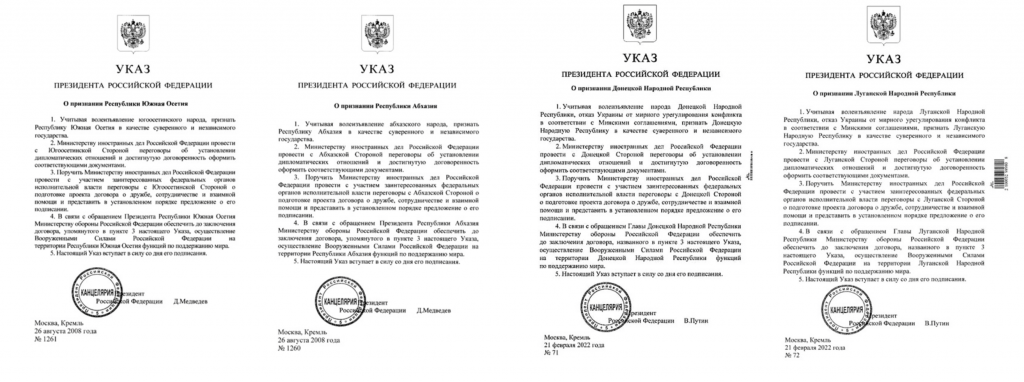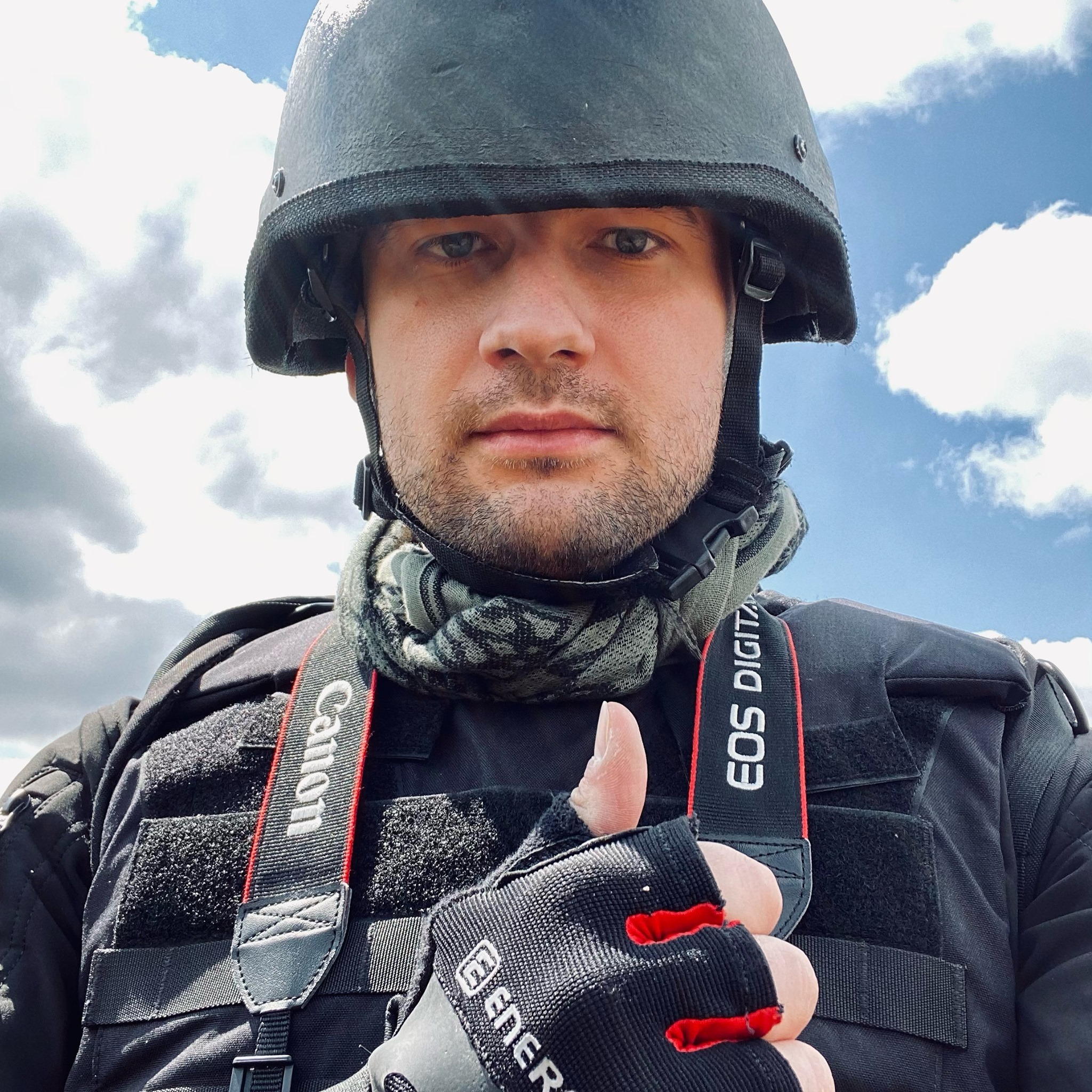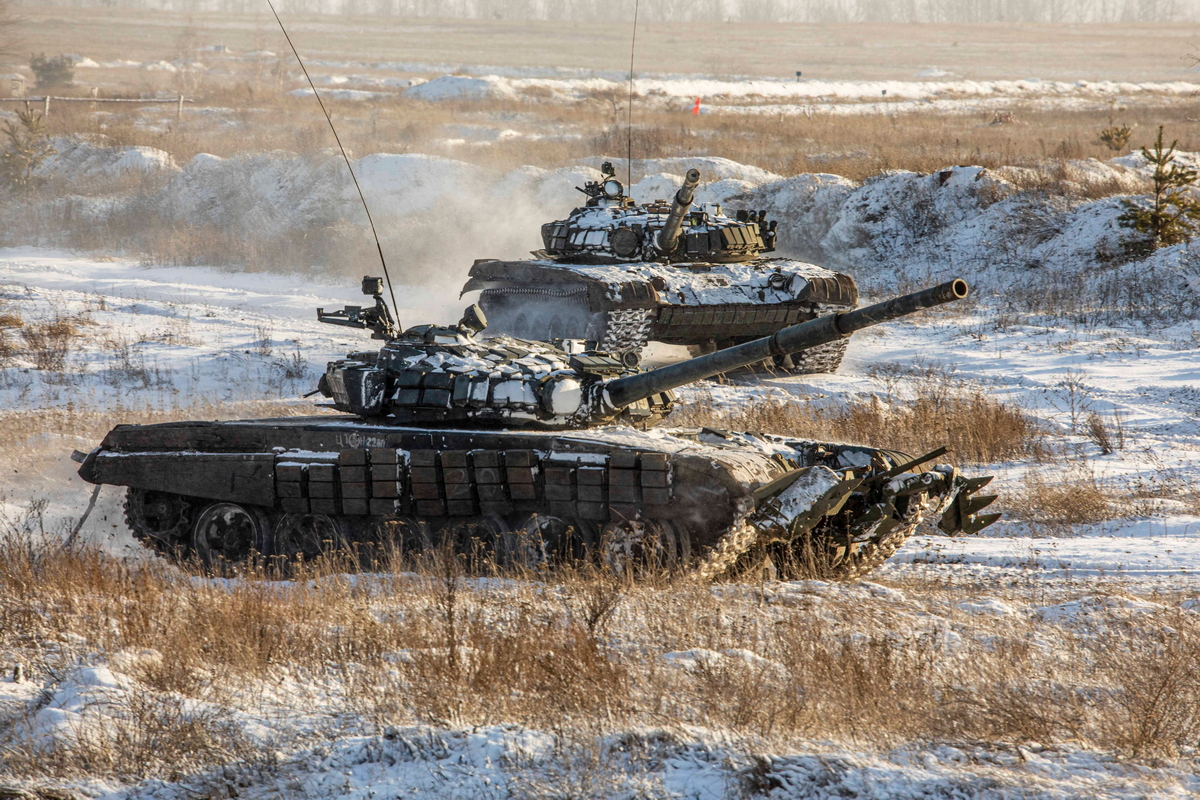
Russia's blatant "recognition" of its own puppet enclaves in Ukraine's Donbas bears a striking resemblance to the events of 2008, when the Kremlin tore off a part of Georgia and invented the “states” of Abkhazia and South Ossetia.
In its ongoing war in eastern Ukraine, Moscow has so far followed its old textbook in almost every single detail.
All of what was seen in Donbas over the last few days -- from the "threat to the civilian population" aggressively staged by propaganda media to local Russian-sponsored leaders making their "official requests of recognition" -- has happened during the Russian-Georgian war in 2008.
Back then, Russia had openly invaded Georgia under the “humanitarian” pretext and installed its official military presence in the breakaway regions that it formally deems independent nations.
Russia’s recognition of Abkhazia and South Ossetia turned the situation into a frozen conflict. More than 13 years later, nearly 20% of Georgia’s territory is still claimed by puppet enclaves recognized by no one by Russia, its client states, and other Kremlin-controlled quasi-states in the region.
Whether the Kremlin stops at this point again, under international pressure, without proceeding to an all-out war on Ukraine, remains to be seen in the coming days.
Excuse for war
Georgia has been in trouble over Abkhazia and South Ossetia ever since it declared independence in 1991.
The country became the scene of one of the several local conflicts that emerged from the downfall of the Soviet Union. Following fierce armed clashes with Georgia’s military, Abkhazia and South Ossetia declared their independence in 1992 and 1994, respectively.
Both breakaway regions remained unrecognized by the global community for decades after.
Nonetheless, the conflict was never fully resolved. In August 2008, tensions in the region escalated again, and the South Ossetian separatist forces shelled several Georgian towns, effectively breaching the 1992 ceasefire agreement.
Following new armed clashes, then-Georgian President Mikheil Saakashvili on Aug. 7, 2008, initiated military action against separatists in South Ossetia. Georgian forces managed to take the city of Tskhinvali within hours but then sustained an offensive by Russian regular forces secretly deployed in the region before the Georgian military action.
Similarly to the heavy-handed infowar campaign against Ukraine in 2022, with tens of thousands of civilians “evacuated” to Russia “amid the threat of Ukraine’s all-out offensive” and accusations of “genocide against Donbas,” Russia accused Georgia of atrocities against South Ossetian civilians and triggered “a peace enforcement operation.”
As a result, Russia attacked Georgia in all domains, including cyberspace, and also delivered airstrikes deep in the country. Combined Russian-separatist forces advanced in South Ossetia and Abkhazia defeated the Georgian military and advanced further, getting closer to the capital city Tbilisi.
An internationally advocated ceasefire was signed on Aug. 12, after five days of hostilities.
Shortly following Russia’s military victory, further developments were running fast: Similarly to the puppet leaders from occupied Donbas, Abkhazian, and South Ossetian Russian-backed administrations sent their “official requests” to be recognized as sovereign states.
The breakaway regions approached Moscow long before Russia even completed withdrawing its military power from Georgian-controlled territory by October 2008.
And the Russian parliament on Aug. 25, 2008, swiftly supported the appeal in both chambers with not a single Russian lawmaker voting against it.
The day after, then-president Dmitry Medvedev (who was de facto keeping the presidential office for Vladimir Putin’s return) signed two decrees to recognize the breakaway districts of Georgia as independent nations.
This was done under the pretext of protecting the local population, among which many had obtained Russian passports, similarly to occupied Donbas. Russia has handed out hundreds of thousands of Russian passports to Ukrainians in the occupied Donbas, which creates the pretext for the open invasion “to protect the Russian citizens in the region.”
The presidential decrees signed for the puppet “states” in Georgia in 2008 and in Ukraine in 2022 were almost completely identical in their wording and structure.

Ever since 2008, Russia has preserved its direct and official military presence in both “republics” in Georgia. Up to 8,000 troops are deployed to Russia’s 7th and 4th Military Bases in Abkhazia and South Ossetia.
Georgia legally considers this as the Russian occupation of its sovereign territory.
The overwhelming majority of the world’s nation declined to give recognition to the Russian-created “independent states,” except for the Syrian regime of Bashar al-Assad, Russia’s client, as well as Nicaragua, Venezuela, Republic of Nauru, as well as the region’s unrecognized or partially recognized Russian-backed quasi-states like Transnistria or Nagorno-Karabakh. Russian puppets in Ukraine’s Donbas have also recognized them.
The Russian-controlled enclaves in east Ukraine are also expected to be recognized by no one by Russia’s client states and other Russian-created pseudo-states in eastern Europe.
As of Feb. 22, Syria’s al-Assad regime endorsed the Russian decision to “recognize” the occupied Donbas — but has not yet recognized it itself.













